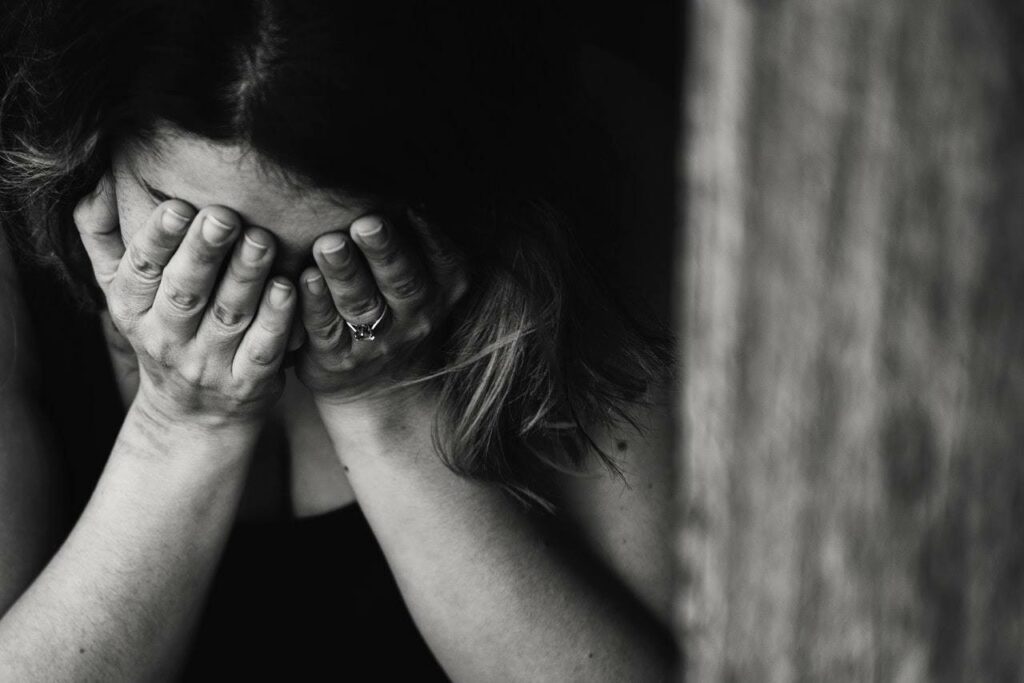A journey towards healing and recovery after an abusive relationship can often feel like navigating through a labyrinth in the dark. The echoes of the past can be deafening, often casting long shadows that can obscure the path to the future. But, as difficult as it may seem, it’s not impossible. Emerging from the storm is a process, a journey that is unique to every individual. This blog aims to be your beacon of hope. Here, we will discuss few options of therapy after abusive relationship, coping strategies, and resources for support to help you reclaim your life after an abusive relationship.
Contents
- 1 How Does Abusive Relationship Impact Your Life?
- 2 How Much Is Therapy After Abusive Relationship Effective?
- 3 What Types Of Therapy After Abusive Relationships Are Used?
- 4 How Is Therapy After Abusive Relationship Delivered?
- 5 What Are Some Coping Strategies To Recover Fast?
- 6 What Are Some Resources To Help You?
- 7 Conclusion
How Does Abusive Relationship Impact Your Life?
 Abusive relationships can profoundly impact your life, leading to deep physical and psychological wounds. The physical abuse may leave scars, chronic pain, or lead to health complications like heart disease and gastrointestinal disorders. Sexual abuse can result in unwanted pregnancies and sexually transmitted infections. The physical harm is often visible, a haunting reminder of the trauma endured.
Abusive relationships can profoundly impact your life, leading to deep physical and psychological wounds. The physical abuse may leave scars, chronic pain, or lead to health complications like heart disease and gastrointestinal disorders. Sexual abuse can result in unwanted pregnancies and sexually transmitted infections. The physical harm is often visible, a haunting reminder of the trauma endured.
Equally as impactful, though less apparent, are the psychological effects of abusive relationships. Victims often suffer from Post-Traumatic Stress Disorder (PTSD), depression, anxiety, and low self-esteem. Their sense of self-worth may be severely damaged, influencing how they perceive themselves and their interactions with others. The emotional toll from an abusive relationship can permeate all aspects of life, shaping a victim’s worldview and self-perception.
How Much Is Therapy After Abusive Relationship Effective?
Therapy can be highly effective in helping individuals recover from abusive relationships. While everyone’s healing process is unique, with varying timelines and outcomes. Still, professional help can offer essential tools and perspectives that facilitate recovery.
For example, CBT can help survivors recognize and challenge destructive thought patterns. And develop healthier responses to stress and trauma triggers. Eye Movement Desensitization and Reprocessing (EMDR) therapy can also be effective in reducing trauma-related symptoms.
It’s important to note that while therapy is a powerful tool, recovery also depends on a variety of factors. Such as the individual’s support system, resilience, and personal resources. Also, it’s crucial that therapy is provided by a licensed, experienced professional, preferably one who specializes in trauma and abuse.
What Types Of Therapy After Abusive Relationships Are Used?
 There are several types of therapy that can be beneficial for individuals recovering from an abusive relationship. Each type has a different approach and can be effective based on the unique needs and circumstances of the individual. Here are some commonly used types:
There are several types of therapy that can be beneficial for individuals recovering from an abusive relationship. Each type has a different approach and can be effective based on the unique needs and circumstances of the individual. Here are some commonly used types:
- Cognitive-Behavioral Therapy (CBT): CBT focuses on identifying and challenging unhelpful patterns in thoughts, beliefs, attitudes, and behaviors. This therapy can help survivors of abuse to reframe negative thoughts and develop healthier coping mechanisms.
- Trauma-Focused Cognitive Behavioral Therapy (TF-CBT): A variant of CBT, TF-CBT is designed specifically for those who have experienced trauma. It helps individuals understand and manage their emotional responses to trauma.
- Dialectical Behavior Therapy (DBT): DBT is a type of therapy that teaches skills to manage pain, decrease conflict in relationships, and control intense emotions. It can be particularly helpful for survivors who have symptoms of PTSD or borderline personality disorder.
- Psychodynamic Therapy: This approach aims to uncover and address the roots of emotional suffering, often by exploring past relationships and the unconscious mind. It may be useful for abuse survivors to understand patterns in their relationships.
- Group Therapy and Support Groups: Hearing others’ experiences and sharing your own in a safe and supportive environment can be very therapeutic. Group therapy and support groups provide a sense of community, mutual understanding, and shared healing.
Remember, what works best will depend on the individual’s unique needs, preferences, and circumstances. A professional therapist or counselor can help decide the most suitable approach.
How Is Therapy After Abusive Relationship Delivered?
Therapy after an abusive relationship can be delivered in various ways, depending on the therapeutic approach, the client’s comfort level, and logistical factors. Here are some of the common delivery methods:
- Individual Therapy
This is a one-on-one session between the therapist and the client. It provides a safe, confidential environment where the client can freely express their thoughts, feelings, and fears. That are related to the abusive relationship.
- Group Therapy
In this setting, a group of individuals who have had similar experiences meet together with a professional therapist. Group therapy can offer a sense of community and support. And allows individuals to learn from others’ experiences and strategies for healing.
- Online or Teletherapy
With advances in technology, therapy can now be provided via video calls, phone calls, or even text messaging. This form of delivery has become increasingly popular. Especially for those who may have difficulty attending in-person sessions due to geographical location, disability, or personal comfort.
- Psychoeducational Workshops
These are often provided in a group format, where individuals learn about the nature and effects of abuse, strategies for coping and healing, and resources for further assistance.
The most important aspect is that therapy should be conducted in a manner that ensures the survivor’s safety, confidentiality, and comfort. And that it is provided by a trained professional with expertise in trauma and abuse.
What Are Some Coping Strategies To Recover Fast?
 While it’s crucial to understand that healing from an abusive relationship takes time. And that each individual’s journey will progress at its own pace, there are certainly strategies that can facilitate recovery. Here are a few coping strategies:
While it’s crucial to understand that healing from an abusive relationship takes time. And that each individual’s journey will progress at its own pace, there are certainly strategies that can facilitate recovery. Here are a few coping strategies:
- Self-Care: Taking care of your physical health can also support mental health. This could involve maintaining a healthy diet, getting regular exercise. It will ensure you get enough sleep, and engaging in relaxing activities you enjoy.
- Mindfulness and Meditation: These techniques can help manage stress, anxiety, and improve mood. They involve focusing on the present moment and accepting it without judgment.
- Journaling: Writing about your experiences and feelings can be therapeutic. It can help you process your emotions, identify patterns and triggers, and track your healing progress.
- Build a Support Network: Surrounding yourself with supportive friends, family, or support groups can be vital. Sharing your experiences with others who understand can lessen feelings of isolation.
- Setting Boundaries: Learning to set and enforce healthy boundaries can help in regaining a sense of control that was often lost in an abusive relationship.
- Developing Healthy Habits and Routines: Establishing a routine can provide a sense of normalcy and control. It can also ensure you’re making time for self-care.
- Education: Learning about the dynamics and effects of abuse can help you understand your reactions and the healing process.
Remember, it’s okay to ask for help, and it’s okay to have good and bad days. Healing is not a linear process. And it’s important to be patient and gentle with yourself throughout the journey.
What Are Some Resources To Help You?
There are numerous resources available to provide support for those recovering from abusive relationships. Here are a few:
- National Domestic Violence Hotline (US): This organization provides 24/7 support to victims of abuse through phone calls, texts, and online chats. They can offer advice, provide resources, and help create safety plans.
- RAINN (Rape, Abuse & Incest National Network): This is the US’s largest anti-sexual violence organization. RAINN operates the National Sexual Assault Hotline and offers a secure, confidential online chat service.
- Women’s Aid (UK): A grassroots federation in the UK striving to end domestic violence against women and children. They offer support, resources, and a directory of local services.
- Local Domestic Violence Shelters: These shelters provide a safe space for victims of abuse. As well as a variety of services, including counseling, legal advocacy, and children’s services.
- Online Support Groups and Forums: There are several websites that provide a virtual space for victims and survivors to connect, share stories, and provide mutual support.
- Local Counseling Centers: Many cities and communities have local counseling centers that provide free or sliding-scale services. These centers may offer individual therapy, group therapy, and other resources for survivors of abuse.
- Self-Help Books: There are numerous books available that can provide guidance and support during recovery, such as “The Body Keeps the Score” by Bessel van der Kolk or “Healing the Trauma of Domestic Violence” by Edward Kubany.
Remember, if you are in immediate danger, always call your local emergency number. It’s important to work with a professional who can guide you towards the resources most suitable for your circumstances.
Conclusion
In conclusion, recovering from an abusive relationship is a journey that takes time, patience, and courage. The impacts of such experiences are profound, affecting both physical and psychological aspects of an individual’s life. However, it’s crucial to remember that recovery is not just possible, but probable. With the right therapeutic approach, effective coping strategies, and a strong support network, survivors can rebuild their lives and re-establish their sense of self.
While the road to recovery may seem daunting at first. But, it’s filled with opportunities for growth, healing, and resilience. Relationships are complex, and it’s natural for issues to arise along the way. If you have any queries regarding Relationship Counseling experienced therapists at CoupleMantra can help: Book a trial couple therapy session


